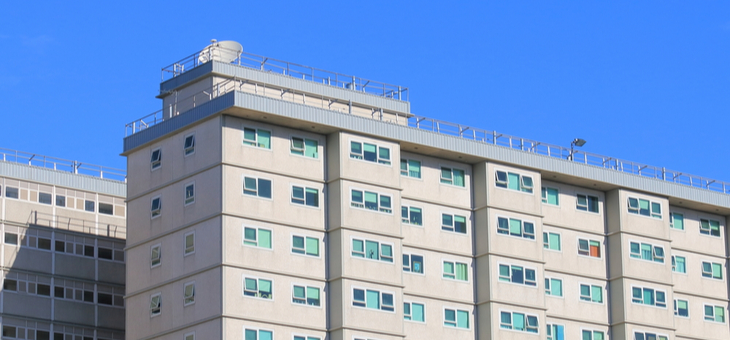An unlikely alliance is campaigning for social housing to be made a cornerstone of Australia’s recession rebuilding plans, despite the federal government ignoring it in the recent budget.
The National Affordable Housing Alliance (NAHA) brings together groups as disparate as the Property Council of Australia, Homelessness Australia, Master Builders Australia, the Australian Council of Trade Unions, Industry Super Australia, anti-poverty body Australian Council of Social Service, National Shelter, and the Community Housing Industry Association.
The alliance aims to see 10 times more social housing built annually in Australia.
Social housing is affordable housing provided by the government and community sectors to assist people who are unable to afford or access suitable accommodation in the private rental market. It includes public housing, state-owned and managed Indigenous housing (SOMIH) and community housing.
In the United Kingdom and Finland, one in six people live in social housing.
In Australia, it’s fewer than one in 20.
Daniel Ziffer from ABC News says the total number of households in Australia has expanded by 30 per cent in the past two decades, but the amount of social housing grew by just 4 per cent.
“Anyone paying more than 30 per cent of their income to keep a roof over their head is in what’s called ‘housing stress’.
“That phrase captures more than 400,000 Australians, and probably many more with the ballooning size of mortgages and stagnant wage growth in recent years.”
NAHA spokesman Rod Fehring, a former residential and commercial property developer, says the organisation means business.
“The important thing is the opportunities are presenting themselves now there’s an opportunity to harness capital and apply it to a social good for an enduring long-term benefit.”
Record low interest rates and capital looking for a return means we face an opportunity “unique in anyone’s lifetime”.
“We need to set ourselves targets to at least start to contribute more than the paltry 4500 (social housing) dwellings per annum that are being produced from the public purse. We need to multiply that by a factor of 10.”
Despite widespread encouragement, social housing was not covered in the Federal Budget in October. The Morrison government favoured tax cuts to middle-income workers and big infrastructure spending to stimulate the economy.
Pro Bono Australia reported investment in social housing would “create 60,000 jobs over four years, building 30,000 properties and renovating 100,000 to decent standards”.
This week, the Victorian government put the issue back on the agenda by announcing an unprecedented $5.3 billion program of spending on social housing, intending to provide 43,000 jobs and build 12,000 homes over the next four years.
“Construction will start immediately on what is being described as the largest ever investment by a state government in public housing across the country,” ABC News reported.
Public housing consists of just 1.9 per cent of Victoria’s total housing stock, compared to an average of 4.6 per cent across the OECD.
Victorian Council of Social Service (VCOSS) chief executive Emma King said Sunday’s announcement was “genuinely unprecedented”.
“We’ve been calling for this for as long as I can remember,” she said.
“We’ve not seen investment of this scale before … we have a desperate need for it in this state. I don’t think any other state or territory in Australia is investing to this magnitude, nor is our federal government.”
Committee for Economic Development of Australia chief economist Jarrod Ball says social housing is logical to provide a longer-term economic impact.
After the global financial crisis in 2008, Australia’s different levels of government built 19,700 new homes and created 9000 new jobs.
Mr Ziffer says social housing has “multiplier effects” in the economy, employing workers in construction and moving people out of housing stress so they can play a greater role in society.
Rebecca Oelkers, chief executive officer of Brisbane Housing Company, says: “Having a roof over your head is an absolutely life-changing thing,” she said.
“It allows you to just get your life together: To get a job and to get education, to be settled down with your kids and to actually participate in the economy. To me that is the kind of Australia that we absolutely want and the kind of Australia that we absolutely need.”
Mr Fehring said it was common interest that had brought such disparate groups together to boost social housing.
“It’s a recognition that housing is a sort of a pillar,” he said. “It gives you the competence and the confidence to be able to engage more broadly with the community and develop the skills that you’ll need to enhance your opportunities in life.”
Community Housing Industry Association of Victoria chief executive Lesley Dredge fears increases in homelessness due to social housing not being addressed.
“When financial support disappears through JobSeeker and JobKeeper, it’s going to be fairly horrific,” she said. “It’s going to be like falling off a cliff.”
Do you support increased spending on public housing? What is the best means to stimulate the Australian economy?
If you enjoy our content, don’t keep it to yourself. Share our free eNews with your friends and encourage them to sign up.
Related articles:
https://www.yourlifechoices.com.au/news/housing-system-broken-and-unfair
https://www.yourlifechoices.com.au/finance/property/public-housing-obligations
https://www.yourlifechoices.com.au/news/the-housing-affordability-crisis

